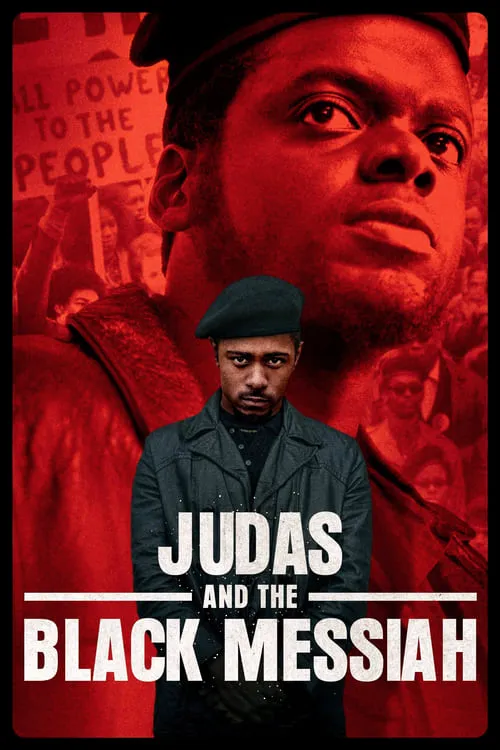Judas and the Black Messiah

Plot
In the midst of the 1960s, the Black Panther Party, a revolutionary organization founded on the principles of self-defense and community empowerment, had emerged as a powerful force in the fight against systemic racism. At the helm of this movement was Fred Hampton, a charismatic and dynamic leader who had quickly risen through the ranks to become Chairman of the Chicago chapter. With his charisma and unwavering commitment to the cause, Hampton had established the Black Panthers as a force to be reckoned with, drawing attention and admiration from across the nation. However, the FBI had other plans for Hampton and the Black Panthers. J. Edgar Hoover, the iconic (and feared) director of the FBI, saw the Black Panthers as a threat to national security and the established order. In an effort to undermine the organization and discredit its leaders, Hoover assigned a mole within the ranks to gather intelligence and sow discord from within. Enter Bill O'Neal, a young and charismatic car thief who had been convicted of various crimes and was eager to escape his troubled past. O'Neal's introduction to the Black Panthers came through an acquaintance named Marshall Law, who had ties to the organization. Law had become embroiled with O'Neal's activities and saw an opportunity to use him to gain entry into the Panthers' inner circle. With Law's guidance, O'Neal presented himself as Fred Hampton's bodyguard, a ruse that would grant him access to the Chairman's innermost sanctum. As O'Neal became more deeply entrenched within the organization, he quickly formed a bond with Hampton, who saw potential in the former car thief. Meanwhile, O'Neal's dual allegiance to Mitchell and the FBI weighed heavily on his conscience. He had been promised immunity and a lighter sentence in exchange for his cooperation, but the more he delved into the world of the Black Panthers, the more he found himself drawn to their cause. His complicated feelings were further intensified by his burgeoning relationship with Deborah Johnson, a fellow revolutionary who had caught Hampton's eye as well. As the battle for O'Neal's soul raged within him, tensions mounted within the Black Panthers. Internal conflicts and power struggles had been brewing, and Hampton's leadership was being tested at every turn. With the FBI breathing down their necks, the Panthers were in a precarious position, and the stakes had never been higher. One fateful night, Hampton invited O'Neal to a meeting at his apartment, where a gathering of high-ranking party officials was taking place. Unbeknownst to O'Neal, the FBI had been monitoring his movements and had received intelligence about the meeting. In a brazen display of audacity, a team of FBI agents, led by Agent Roy Mitchell, raided the apartment, using O'Neal as their guide. The ensuing confrontation escalated into a violent standoff, with O'Neal struggling to reconcile his dual allegiances in the heat of the moment. In the end, it was Hampton's courage and defiance that inspired his comrades to stand their ground, but the damage was done – the FBI had struck a blow to the Black Panthers, and the organization would never be the same. In the aftermath of the raid, O'Neal's relationship with Deborah began to blossom, but his treachery had left her heartbroken. The trauma of that fateful night would haunt O'Neal for the rest of his life, a constant reminder of the choices he had made and the consequences that had followed. As the film draws to a close, the legacy of Fred Hampton lives on, a testament to his unwavering commitment to the cause and his unshakeable trust in the power of the Black Panthers. The film serves as a poignant reminder of the sacrifices made by those who fought for justice and equality, and the enduring impact of their struggles on the world we live in today. In the end, the true Judas of the story is not O'Neal, but the system that exploited him and corrupted him, turning a man with potential into a pawn in a far larger game. The film is a powerful tribute to the Black Panther movement and its courageous leaders, a reminder that the fight for justice is never truly won, but is instead a constant struggle for the future we all deserve.
Reviews
Recommendations




